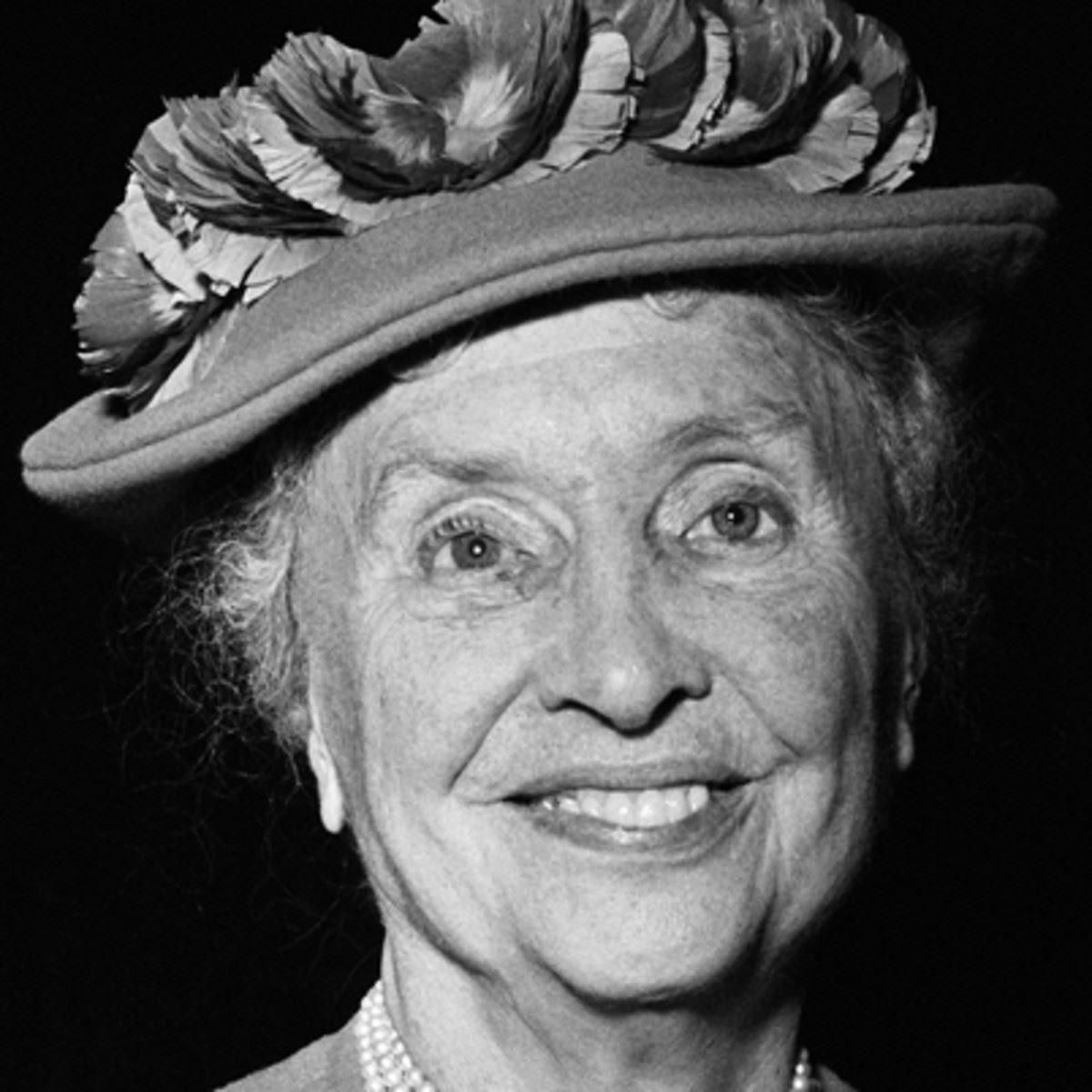 Helen Keller in her mid-70shttps://www.biography.com/people/helen-keller-9361967“Old shipmates, friends, the rest of you stand by; I’ll make the crossing in my own ship, with my own company, and find out what the mainland natives are-for they may be wild savages, and lawless, or hospitable and god-fearing men” (Homer). In the ninth book of The Odyssey, Odysseus volunteers to explore the Island of Cyclops to find out if the inhabitants are hospitable or not. Odysseus selflessly endangers his own safety for his men, and like the ship, he carries the safety of his men on his own shoulders. But what qualifications make a modern real-life hero stand on the same heroic pedetal as Odysseus? A hero must prioritize other’s well being over themselves and be fearless in helping others, no matter how grim the situation. Heroic figures should not only endeavor to overcome personal obstacles but also strive to unlock the full potential of others. The archetypal principle of altruism frequently manifests itself in ordinary life: ranging from the selfless firefighters who save others from the tempestuous waters of a hurricane to the determined who finds a cure for a disease. Furthermore, heroism does not confine to a single great achievement; the accomplishments can be a success of small acts and be at various orders of magnitude. Heroism is spotted in the little acts of compassion, squeezed through the clenched fists of determination, and concealed within the shadow of humility. Furthermore, a hero’s actions must instill hope in others to make their goals a reality, as well as inspire others to spread a perpetual ripple of compassion. A true hero is someone who perseveres through strife and exemplifies altruism in order to benefit others.
Helen Keller in her mid-70shttps://www.biography.com/people/helen-keller-9361967“Old shipmates, friends, the rest of you stand by; I’ll make the crossing in my own ship, with my own company, and find out what the mainland natives are-for they may be wild savages, and lawless, or hospitable and god-fearing men” (Homer). In the ninth book of The Odyssey, Odysseus volunteers to explore the Island of Cyclops to find out if the inhabitants are hospitable or not. Odysseus selflessly endangers his own safety for his men, and like the ship, he carries the safety of his men on his own shoulders. But what qualifications make a modern real-life hero stand on the same heroic pedetal as Odysseus? A hero must prioritize other’s well being over themselves and be fearless in helping others, no matter how grim the situation. Heroic figures should not only endeavor to overcome personal obstacles but also strive to unlock the full potential of others. The archetypal principle of altruism frequently manifests itself in ordinary life: ranging from the selfless firefighters who save others from the tempestuous waters of a hurricane to the determined who finds a cure for a disease. Furthermore, heroism does not confine to a single great achievement; the accomplishments can be a success of small acts and be at various orders of magnitude. Heroism is spotted in the little acts of compassion, squeezed through the clenched fists of determination, and concealed within the shadow of humility. Furthermore, a hero’s actions must instill hope in others to make their goals a reality, as well as inspire others to spread a perpetual ripple of compassion. A true hero is someone who perseveres through strife and exemplifies altruism in order to benefit others.
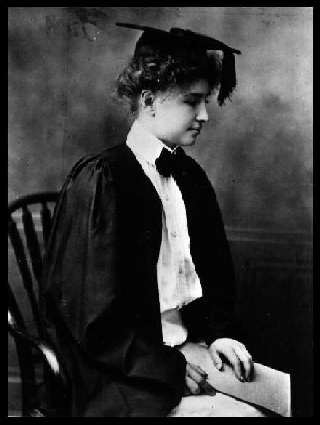 Helen Keller graduated with honors from Radcliffe collegehttps://www.afb.org/info/about-us/helen-keller/photos-and-permissions/1895-1904/helen-keller-at-her-radcliffe-graduation-1904/12345Like Odysseus, Helen Keller selflessly carries others on her own ship and aids other people on their journey to reach their full potential. At the age of 18 months, Helen developed a fever that ultimately took both her eyesight and hearing completely. However, with the help of her teacher, Anne Sullivan, Helen grew up learning how to speak and read in braille. She was admitted into Radcliffe College, where she studied and graduated with high honors in 1904. Unlike other people, Helen Keller had to climb a different, more rigorous path towards an education. After graduating, Keller devoted her life to lecturing around the world and improving the education and living conditions for the physically handicapped until her death in 1968. Her perseverance to overcome her physical limitations and discover knowledge about the world subsequently translated to her determination to help others. Because of her incessant determination to recover from failure and altruistic desire to better the lives of others, Helen Keller embodies the spirit of a true hero.
Helen Keller graduated with honors from Radcliffe collegehttps://www.afb.org/info/about-us/helen-keller/photos-and-permissions/1895-1904/helen-keller-at-her-radcliffe-graduation-1904/12345Like Odysseus, Helen Keller selflessly carries others on her own ship and aids other people on their journey to reach their full potential. At the age of 18 months, Helen developed a fever that ultimately took both her eyesight and hearing completely. However, with the help of her teacher, Anne Sullivan, Helen grew up learning how to speak and read in braille. She was admitted into Radcliffe College, where she studied and graduated with high honors in 1904. Unlike other people, Helen Keller had to climb a different, more rigorous path towards an education. After graduating, Keller devoted her life to lecturing around the world and improving the education and living conditions for the physically handicapped until her death in 1968. Her perseverance to overcome her physical limitations and discover knowledge about the world subsequently translated to her determination to help others. Because of her incessant determination to recover from failure and altruistic desire to better the lives of others, Helen Keller embodies the spirit of a true hero.
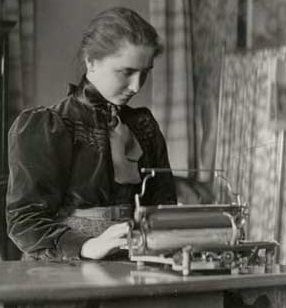 Helen Keller writing on her typewriter. Many of her books spread awareness for the handicapped.https://oztypewriter.blogspot.com/2011/06/on-this-day-in-typewriter-history_6439.htmlHelen Keller persevered through seemingly irreversible failure and devastation, which in turn, allowed her to better herself and others. During Keller’s childhood education, she was the center of public attention and praised for her intelligence. However, her first published story was accused of plagiarism, which irreparably damaged her public reputation. Despite losing the trust of many people, Helen Keller continued to write and defy her disabilities. In Helen Keller’s autobiography, The Story of My Life, she responds to her failure with an objective attitude: “Gradually, I emerged from this “Frost King” affair with a mind made clearer by education and with a truer knowledge of life. I wrote timidly but resolutely and laboured night and day so that I should find my mental foothold again” (Keller 38). After the ‘Frost King’ incident, Keller faced two options—accept the failure or neglect the educational opportunity. Keller did not meet her failure with petulance; instead, she recognized her imperfections and worked even harder to overcome her failures. Her drive, as shown in her resilience to the plagiarism incident, illustrates her relentless desire to better herself. Many people would just be content with their imperfections, but Keller strived to better herself to the fullest by laboring ‘night and day’. Thus, Keller’s constant drive to better herself through strife distinguishes her from others and proves her to be an inspirational figure. Keller’s resilience through strife is showcased once again when her house in Connecticut was burned down. Unfortunately, the flames also destroyed Keller’s progress in her unfinished book, How I Would Help the World, which was written to raise awareness for the impoverished: “The flames carried the book she was writing about for the infirmities...Her spiritual home was intact and as she wandered, bereft and uncertain, she regathered her strength. She began the book again, self-disciplined as always to accomplishment” (Henney). Despite losing all her progress, Keller continued to write in order to benefit the lives of the impoverished. Her drive, as shown by her return to her work directly after the disaster, illustrates her need to help the less-fortunate. Thus, Keller’s ability to quickly recover from devastation is the underlying asset that allowed her to continually work for others. Heroes never give up in attempting to better the lives of others no matter how grim the situation, and Keller embodies this postulate. Helen Keller’s ability to learn from failure and persevere through physical hardships demonstrates her intrinsic inclination to better herself and others.
Helen Keller writing on her typewriter. Many of her books spread awareness for the handicapped.https://oztypewriter.blogspot.com/2011/06/on-this-day-in-typewriter-history_6439.htmlHelen Keller persevered through seemingly irreversible failure and devastation, which in turn, allowed her to better herself and others. During Keller’s childhood education, she was the center of public attention and praised for her intelligence. However, her first published story was accused of plagiarism, which irreparably damaged her public reputation. Despite losing the trust of many people, Helen Keller continued to write and defy her disabilities. In Helen Keller’s autobiography, The Story of My Life, she responds to her failure with an objective attitude: “Gradually, I emerged from this “Frost King” affair with a mind made clearer by education and with a truer knowledge of life. I wrote timidly but resolutely and laboured night and day so that I should find my mental foothold again” (Keller 38). After the ‘Frost King’ incident, Keller faced two options—accept the failure or neglect the educational opportunity. Keller did not meet her failure with petulance; instead, she recognized her imperfections and worked even harder to overcome her failures. Her drive, as shown in her resilience to the plagiarism incident, illustrates her relentless desire to better herself. Many people would just be content with their imperfections, but Keller strived to better herself to the fullest by laboring ‘night and day’. Thus, Keller’s constant drive to better herself through strife distinguishes her from others and proves her to be an inspirational figure. Keller’s resilience through strife is showcased once again when her house in Connecticut was burned down. Unfortunately, the flames also destroyed Keller’s progress in her unfinished book, How I Would Help the World, which was written to raise awareness for the impoverished: “The flames carried the book she was writing about for the infirmities...Her spiritual home was intact and as she wandered, bereft and uncertain, she regathered her strength. She began the book again, self-disciplined as always to accomplishment” (Henney). Despite losing all her progress, Keller continued to write in order to benefit the lives of the impoverished. Her drive, as shown by her return to her work directly after the disaster, illustrates her need to help the less-fortunate. Thus, Keller’s ability to quickly recover from devastation is the underlying asset that allowed her to continually work for others. Heroes never give up in attempting to better the lives of others no matter how grim the situation, and Keller embodies this postulate. Helen Keller’s ability to learn from failure and persevere through physical hardships demonstrates her intrinsic inclination to better herself and others.
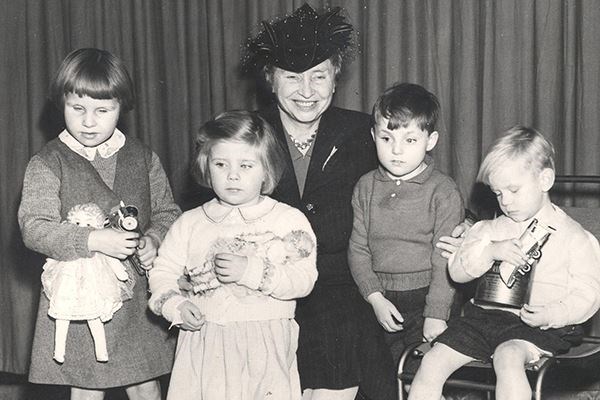 Helen Keller built workshops to provide an education for the blind and the deaf.https://www.afb.org/info/living-with-vision-loss/for-job-seekers/our-stories/writing/helen-keller-author-and-writer/12345
Helen Keller built workshops to provide an education for the blind and the deaf.https://www.afb.org/info/living-with-vision-loss/for-job-seekers/our-stories/writing/helen-keller-author-and-writer/12345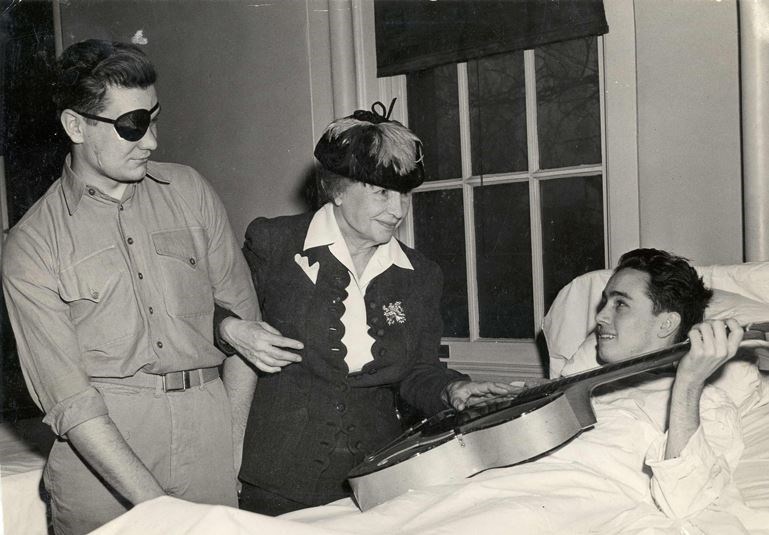 Helen Keller helping wounded soldiers in a World War II hospital.https://www.afb.org/blog/afb-blog/save-the-helen-keller-archives-day-6/12Helen Keller was a selfless figure who deeply cared about improving the lives of the impoverished and disabled. During World War II, Helen Keller endangered her own safety to care for the well-being of the wounded men and traveled around the world to spread compassion: "During the Second World War she visited hospitals and brought comfort to many hundreds of wounded men who had been embittered or terrified. To these men she gave faith, hope, and the cheerfulness that faith and hope can produce...Her pity has been saved for others -- for the blind, for the deaf, for those who are falsely called dumb, for the ill, for the wounded and the bereaved. She has traveled both hemispheres, revitalizing programs for the handicapped everywhere and leaving behind her a trail of new schools, new printing presses and new workshops for the deaf and blind" (Duffus). Helen Keller’s ambitious actions of helping men in the most dangerous warzone displayed her selfless nature and willingness to sacrifice her own personal safety for others. Her fearless drive to benefit others while disregarding personal safety represents one of the dominant virtues of a true hero. Moreover, as illustrated in Helen Keller’s revitalizing work for the deaf and blind, she remained resolute in what she believed in: that potential is in no way limited by the circumstances of one’s disabilities. Because Helen Keller did not allow herself to be set back by her physical conditions, she selflessly aids other disabled people to overcome their physical limitations. Thus, Helen Keller conquered and accomplished much more than just learning how to speak and read; she fearlessly helped others battle their physical limitations by providing education for the handicapped. Her selfless incentives to spread the perpetual ripple of compassion towards the less fortunate proves that even without accounting for Helen’s disabilities, she embodies the idealistic assets of a selfless hero. Keller’s heroism is consistently portrayed throughout her life, for her lifelong work of compassion never ceased—even at the age of 70 and on a vacation to Paris, Helen Keller continued to spread compassion: "Miss Keller pursues her destiny and, at 70, plans to carry on as always...Helen Keller found instead somewhat the same buzz saw of activity she had left in America. Many, many people came to see her, and she would sit, like a Delphic oracle, in one corner of Jo Davidson's studio with Miss Thomson at her side, receiving and, if need be, encouraging her visitors...she once went to Japan to change that Government's laissez-faire attitude toward the blind" (Barry). Vacations traditionally represent a time of self-enjoyment and tend to emphasize on individualistic activities. Yet, Helen Keller persisted in aiding the handicapped. Her noble value of prioritizing others over herself illustrates her deep inclination to help others. Many modern heroes are empowered by monetary rewards and an upraise in status. However, Keller’s selfless actions are not driven by wealth or fame, but empowered by other people’s happiness, as shown by her incessant actions of ‘receiving and encouraging’ others. Additionally, as showcased in Keller’s visit to Japan, her selfless acts played a pivotal role in radically altering the world’s perspective on the disabled. Keller selflessly took the initiative to change prejudiced views of the disabled at an international and political stage, which is an act worthy of universal admiration. Many critics may argue that Helen Keller lacks self-reliance, that throughout her life she was entirely dependent on Anne Sullivan, and thus unfitting of the heroic mantle. However, Keller’s interminable compassion for others is deeply rooted in her altruistic nature-her altruistic nature cannot be nurtured by someone else. Though Helen Keller is undeniably dependent on others in performing external activities, her selfless actions demonstrate that she is morally and intrinsically self-sufficient, which outweighs the former. Despite her old age and being in a self-absorbed environment, Keller continued to selflessly work for the disabled, demonstrating the deep level of compassion she held for others. Helen Keller’s unremitting dedication to helping the impoverished and deep compassion for the disabled primarily stemmed from her selfless nature, thus characterizing her as a hero.
Helen Keller helping wounded soldiers in a World War II hospital.https://www.afb.org/blog/afb-blog/save-the-helen-keller-archives-day-6/12Helen Keller was a selfless figure who deeply cared about improving the lives of the impoverished and disabled. During World War II, Helen Keller endangered her own safety to care for the well-being of the wounded men and traveled around the world to spread compassion: "During the Second World War she visited hospitals and brought comfort to many hundreds of wounded men who had been embittered or terrified. To these men she gave faith, hope, and the cheerfulness that faith and hope can produce...Her pity has been saved for others -- for the blind, for the deaf, for those who are falsely called dumb, for the ill, for the wounded and the bereaved. She has traveled both hemispheres, revitalizing programs for the handicapped everywhere and leaving behind her a trail of new schools, new printing presses and new workshops for the deaf and blind" (Duffus). Helen Keller’s ambitious actions of helping men in the most dangerous warzone displayed her selfless nature and willingness to sacrifice her own personal safety for others. Her fearless drive to benefit others while disregarding personal safety represents one of the dominant virtues of a true hero. Moreover, as illustrated in Helen Keller’s revitalizing work for the deaf and blind, she remained resolute in what she believed in: that potential is in no way limited by the circumstances of one’s disabilities. Because Helen Keller did not allow herself to be set back by her physical conditions, she selflessly aids other disabled people to overcome their physical limitations. Thus, Helen Keller conquered and accomplished much more than just learning how to speak and read; she fearlessly helped others battle their physical limitations by providing education for the handicapped. Her selfless incentives to spread the perpetual ripple of compassion towards the less fortunate proves that even without accounting for Helen’s disabilities, she embodies the idealistic assets of a selfless hero. Keller’s heroism is consistently portrayed throughout her life, for her lifelong work of compassion never ceased—even at the age of 70 and on a vacation to Paris, Helen Keller continued to spread compassion: "Miss Keller pursues her destiny and, at 70, plans to carry on as always...Helen Keller found instead somewhat the same buzz saw of activity she had left in America. Many, many people came to see her, and she would sit, like a Delphic oracle, in one corner of Jo Davidson's studio with Miss Thomson at her side, receiving and, if need be, encouraging her visitors...she once went to Japan to change that Government's laissez-faire attitude toward the blind" (Barry). Vacations traditionally represent a time of self-enjoyment and tend to emphasize on individualistic activities. Yet, Helen Keller persisted in aiding the handicapped. Her noble value of prioritizing others over herself illustrates her deep inclination to help others. Many modern heroes are empowered by monetary rewards and an upraise in status. However, Keller’s selfless actions are not driven by wealth or fame, but empowered by other people’s happiness, as shown by her incessant actions of ‘receiving and encouraging’ others. Additionally, as showcased in Keller’s visit to Japan, her selfless acts played a pivotal role in radically altering the world’s perspective on the disabled. Keller selflessly took the initiative to change prejudiced views of the disabled at an international and political stage, which is an act worthy of universal admiration. Many critics may argue that Helen Keller lacks self-reliance, that throughout her life she was entirely dependent on Anne Sullivan, and thus unfitting of the heroic mantle. However, Keller’s interminable compassion for others is deeply rooted in her altruistic nature-her altruistic nature cannot be nurtured by someone else. Though Helen Keller is undeniably dependent on others in performing external activities, her selfless actions demonstrate that she is morally and intrinsically self-sufficient, which outweighs the former. Despite her old age and being in a self-absorbed environment, Keller continued to selflessly work for the disabled, demonstrating the deep level of compassion she held for others. Helen Keller’s unremitting dedication to helping the impoverished and deep compassion for the disabled primarily stemmed from her selfless nature, thus characterizing her as a hero.
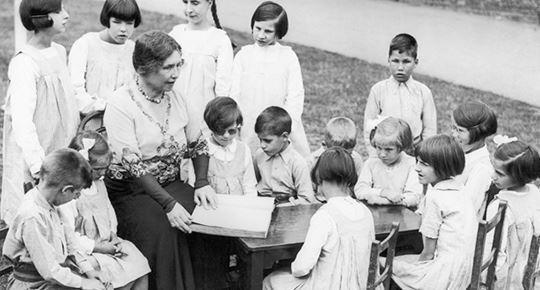 Helen Keller reads and teaches to a group of handicapped students.https://helenkellerfoundation.org/education/As highlighted by both her resilience through strife and selfless actions to improve the lives of the less-fortunate, Helen Keller indisputably mounts the epitome of heroic hierarchy. Helen Keller’s ability to overcome personal obstacles and devote her benevolence to others stemmed from her resilience to failure. Throughout Keller’s life, she held steadfast to her belief that anyone, no matter their limitations, can achieve happiness and live life to their full capacity. Not only did she defy her own limitations, but she also worked selflessly to help other people surmount their handicaps: “At one cocktail party the daughter of philosopher Henri Bergson dropped by to tell her that she was not sad to be deaf; she was finding work and happiness in painting. "Wonderful!" Helen Keller said and squeezed her arms in enthusiasm” (Henney). Keller teaches the little girl that her disabilities do not restrict her and inspires the girl to harness her beautiful gift. Not only does Keller overcome her own personal disabilities, but she also inspires us to transcend our own personal obstacles. Through Helen Keller’s selfless action for the disabled, she inspires us to eradicate our selfish bubbles and exploit our compassion for others. Unlike many of us, Helen Keller cannot see light or hear music in her silent, isolated world. However, her happiness is rooted in other people’s joy; she makes other people’s happiness her light and music.
Helen Keller reads and teaches to a group of handicapped students.https://helenkellerfoundation.org/education/As highlighted by both her resilience through strife and selfless actions to improve the lives of the less-fortunate, Helen Keller indisputably mounts the epitome of heroic hierarchy. Helen Keller’s ability to overcome personal obstacles and devote her benevolence to others stemmed from her resilience to failure. Throughout Keller’s life, she held steadfast to her belief that anyone, no matter their limitations, can achieve happiness and live life to their full capacity. Not only did she defy her own limitations, but she also worked selflessly to help other people surmount their handicaps: “At one cocktail party the daughter of philosopher Henri Bergson dropped by to tell her that she was not sad to be deaf; she was finding work and happiness in painting. "Wonderful!" Helen Keller said and squeezed her arms in enthusiasm” (Henney). Keller teaches the little girl that her disabilities do not restrict her and inspires the girl to harness her beautiful gift. Not only does Keller overcome her own personal disabilities, but she also inspires us to transcend our own personal obstacles. Through Helen Keller’s selfless action for the disabled, she inspires us to eradicate our selfish bubbles and exploit our compassion for others. Unlike many of us, Helen Keller cannot see light or hear music in her silent, isolated world. However, her happiness is rooted in other people’s joy; she makes other people’s happiness her light and music.
Helen Keller’s unique and universal story has played a definite role in my life. My uncle is disabled and has down syndrome, a genetic disorder that causes physical disabilities and delays mental development. Like Helen Keller, my uncle lives in a severely handicapped world. Helen Keller’s story helped me realize that although my uncle has physical limitations, his happiness withholds no boundaries. Because of her actions, I aspire to study in the medical field in order to find a cure to prevent childhood deformities. As Odysseus and his shipmates conquered many obstacles and sailed through the mystical sea, Helen Keller was fearless in spite of her disabilities and humbly navigated her way through a dark and vast ocean. Not only did she sail across her own sea of limitations through sheer determination, she also personifies the defining light that illuminates the dark pathway for the disabled. Helen Keller not only inspires us to sail beyond our limitations, but also build our own boats to benefit others.
Works Cited
Barry, Joseph A. “At 70, 'New Spirit, New Freedom'.” The New York Times, 25 June 1950.
"Helen Adams Keller." Encyclopedia of World Biography, Gale, 1998. Biography in Context,
https://link.galegroup.com/apps/doc/K1631003551/BIC1?u=powa9245&xid=65651243. Accessed 21 Dec. 2017.
Keller, Hellen A. The Story of my Life. New York: Dover publications, 1996. Print.
Page created on 2/26/2018 5:15:20 AM
Last edited 2/27/2018 12:43:11 AM
